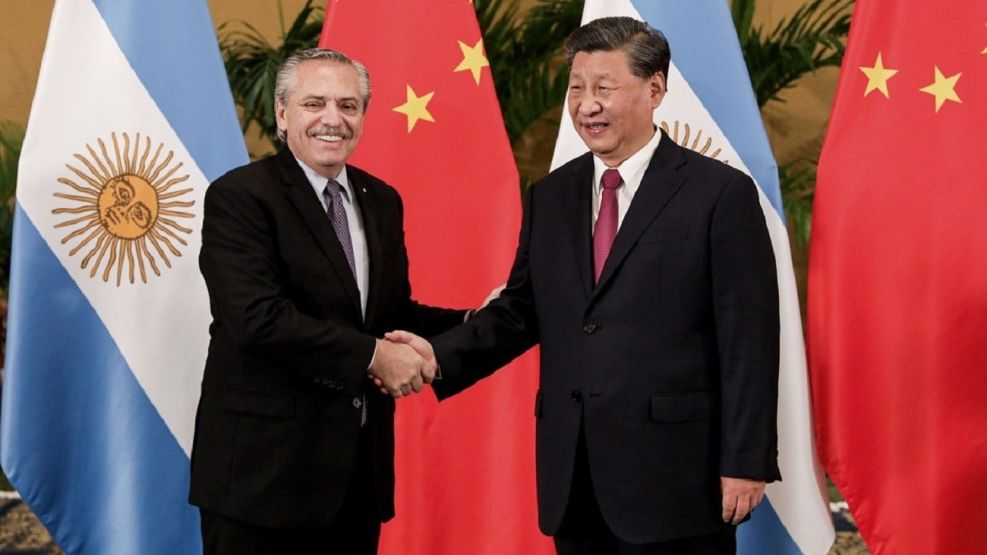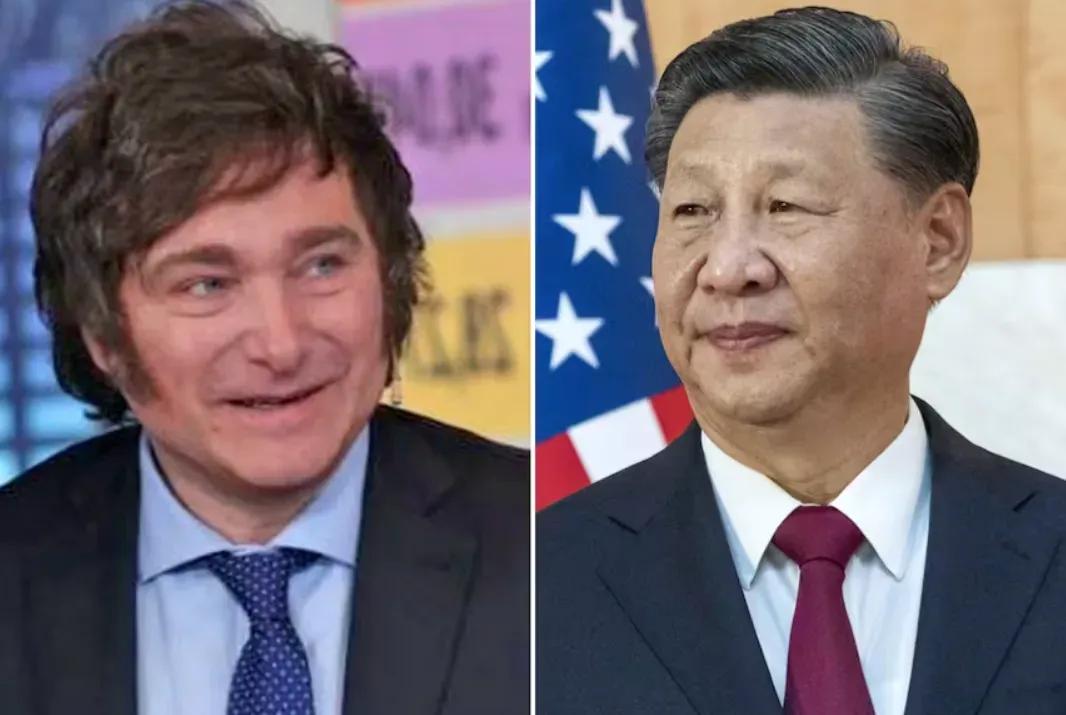Javier Milei and Xi Jinping
China and Argentina: From Partners to Doubts in Foreign Policy
Sometimes it seems that Argentina has a kind of "great power syndrome." We went from believing we are the center of the world to acting as if we were in a corner that nobody cares about. And in this game of mirrors between our self-esteem and reality, China appears as a silent but important player. Since 1972, when formal diplomatic relations were established, the Asian giant has become one of the country’s most important trading partners.
China buys soybeans, beef, barley... Yes, very agricultural, but for the Argentine economy, this is pure gold. At times when the Central Bank's reserves are on the brink of disappearance, exports to China are a breath of fresh air. But not only that: energy, mining, and infrastructure are sectors in which the Asian country has set its sights, investing astronomical figures that, for many, represent a lifeline.
So, why question a relationship that seems to be the solution to so many problems? Well, international politics is a sensitive field, and with the arrival of Javier Milei at the Rosada, the dynamics could change.
Fernández and China: Love at First Sight
Looking back, during the government of Alberto Fernández, Argentina formalized its adherence to the Belt and Road Initiative, that global mega-infrastructure project from China. At first glance, it might seem like one of those agreements where the country bows to a foreign power, but the reality is different. Thirteen confidential documents were signed, covering strategic areas such as science, technology, agriculture, and education, which led to the development of projects like the CART radio telescope in San Juan and the ground station for the global navigation system Beidou.
Fernández didn’t care much whether China was communist or not. What he saw was an economic opportunity, a chance to “oxygenate” the Central Bank’s reserves and ensure exports in difficult times. In other words, there was more pragmatism than ideology or maybe the reverse. The goal was to take advantage of what was on the horizon without much value conflict. But Milei is different.

Milei and Anticommunism: A New Paradigm?
Unlike Fernández, Javier Milei can’t stop talking about communism. For him, China is much more than a trading partner; it represents everything he despises in ideological terms. In his early speeches and interviews, Milei has made it clear that he will seek to strengthen relations with the United States and other Western countries, in an attempt to realign Argentina's foreign policy toward a framework more in line with his libertarian convictions.
Now, let’s not kid ourselves. Milei’s anti-China rhetoric sounds very strong, but one thing is the discourse and another the reality. China is the second destination for Argentine exports, and cutting off the relationship would be economic suicide. In his early months in power, Milei has shown signs that he understands this duality: he doesn't like communism, but he needs trade with China to prevent the economy from collapsing.
In this context, the trip that Karina Milei has scheduled to China in November could be key. She is the President’s Chief of Staff and, according to some sources, his main advisor. If Milei really wants to recalibrate the relationship with China without destroying it, this trip will be a turning point.

The Numbers Don’t Lie: Trade with China, an Undeniable Reality
While Milei discusses communism and freedom, the economic reality continues its course. So far this year, China has authorized four Argentine meatpacking plants to export animal products. This is just one example of how, beyond politics, trade between both countries keeps growing. We are not just talking about soybeans and beef; the Argentine agro-export industry depends on these exchanges to stay afloat.
On the other hand, China is not naïve. On several occasions, it has used trade tools such as tariff pressure or license restrictions to express its diplomatic displeasure. If Milei decides to cool relations, as many of his supporters wish, how quickly will China react? We know that at the global level, the Asian power has a long history of using the economy as a diplomatic tool. And Argentina, with its structural weakness, is an easy target.
Ideology vs. Realism: The Difficulty of Governing
Milei came to power with the promise of a liberal revolution: to shrink the state, eliminate regulations, and above all, realign foreign relations with the Western world. The problem is that, in the case of China, you cannot simply cut the relationship without facing serious economic consequences.
Many agree that, despite the cooling in diplomatic relations with China, trade between both countries continues without major disruptions. The Milei government is expected to take a pragmatic approach to avoid an economic crisis. Ultimately, ideology and pragmatism are in conflict, and although Milei maintains his firm discourse, he will not be able to ignore the figures that speak for themselves.
The Provinces and Lithium: An Exchange That Doesn’t Stop
If anything has become clear in recent years, it is that, regardless of what happens at the national level, the Argentine provinces have their own game with China. Governors of provinces such as Jujuy, Salta, and Catamarca have leveraged the Chinese interest in lithium to attract multimillion-dollar investments. The Chinese ambassador to Argentina has toured the country signing agreements with subnational governments, demonstrating that the exchange between both countries does not solely depend on the will of the central government.
Why is this important? Because, although Milei wants to distance himself from China at the national level, economic interests at the provincial level will continue to press to maintain the flow of investments. The provinces need lithium, copper, and other natural resources to generate jobs and develop their local economies. If the central government decides to cut ties, it will not only be Buenos Aires that suffers the consequences.
Regional Geopolitics and the Milei Factor
Finally, we must look around us. The relationship with China does not develop in a vacuum. Latin America is in constant change, and Argentina's position in this context is key. Countries like Brazil, Peru, and Chile have strengthened their relations with China in recent years, creating a regional dynamic of interdependence. If Argentina chooses to distance itself, how will these countries react? And will this affect our negotiating capacity in international organizations?
The Milei administration will have to navigate a complicated geopolitical terrain. China is not just another partner, it is a relevant actor influencing the entire region. The remaining question is whether Milei can manage this relationship with the same pragmatism as his predecessors or if his ideology will lead him to make decisions that could isolate Argentina at a time of significant changes.
Between Rhetoric and Reality
The arrival of Javier Milei marks a before and after in Argentine foreign policy. His anticommunist rhetoric has generated uncertainty about the future of relations with China, but economic reality demands a more pragmatic view. Exports, investments, and the need for foreign exchange impose limits on what Milei can do without risking the stability of the country.
Milei’s real challenge: Defend his principles without succumbing to economic dependence on China. In the coming months, his ability to maintain his ideological convictions while facing the demands of economic reality will be put to the test.

Comments